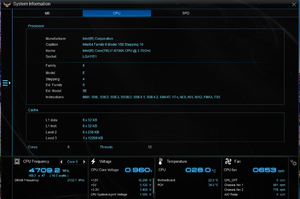To the OP's initial question, I just upgraded to an 8700K from an I7 920 system I built at the end of 2009. I probably won't build another system for another 5 years (or longer), which may put me in the minority around here. However, I could care less what comes out in 6 months. This was my time to upgrade, I'm enjoying it, and I'll be happy regardless when the next thing comes.
Finally a post that is on topic.
Hint hint... cough J...and some others.
Youll be pleased with 8700k. I had one but returned it and got a 7820x instead.
I also have an 8600k and the thing is a beastly gaming processor.
Also QuickSync transcodes are pretty quick on the IGP esp. Oc'd. Not as high quality as NVenc which is not as high quality as just pure CPU transcoding.
But gaming on Coffee Lake is second to none the absolute best in desktop class. The extra two true cores reallt smooths things out.
I also am excited at the 8 core drop in later in the year. I want another 8700k but im happy with my i5 so I will wait and get the 8 core I7 when it drops.
I am unhappy with my Asus ITX board. It cant deliver enough power via the mosfets for 5 ghz at lower voltage.
![[H]ard|Forum](/styles/hardforum/xenforo/logo_dark.png)



